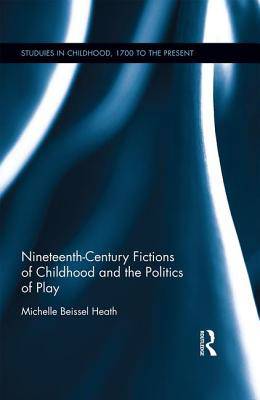
- Retrait gratuit dans votre magasin Club
- 7.000.000 titres dans notre catalogue
- Payer en toute sécurité
- Toujours un magasin près de chez vous
- Retrait gratuit dans votre magasin Club
- 7.000.0000 titres dans notre catalogue
- Payer en toute sécurité
- Toujours un magasin près de chez vous
Nineteenth-Century Fictions of Childhood and the Politics of Play
Michelle Beissel HeathDescription
Drawing evidence from transatlantic literary texts of childhood as well as from nineteenth and early twentieth century children's and family card, board, and parlor games and games manuals, Nineteenth-Century Fictions of Childhood and the Politics of Play aims to reveal what might be thought of as "playful literary citizenship," or some of the motivations inherent in later nineteenth and early twentieth century Anglo-American play pursuits as they relate to interest in shaping citizens through investment in "good" literature. Tracing play, as a societal and historical construct, as it surfaces time and again in children's literary texts as well as children's literary texts as they surface time and again in situations and environments of children's play, this book underscores how play and literature are consistently deployed in tandem in attempts to create ideal citizens - even as those ideals varied greatly and were dependent on factors such as gender, ethnicity, colonial status, and class.
Spécifications
Parties prenantes
- Auteur(s) :
- Editeur:
Contenu
- Nombre de pages :
- 178
- Langue:
- Anglais
- Collection :
Caractéristiques
- EAN:
- 9781472487339
- Date de parution :
- 19-09-17
- Format:
- Livre relié
- Format numérique:
- Genaaid
- Dimensions :
- 152 mm x 229 mm
- Poids :
- 509 g

Les avis
Nous publions uniquement les avis qui respectent les conditions requises. Consultez nos conditions pour les avis.






